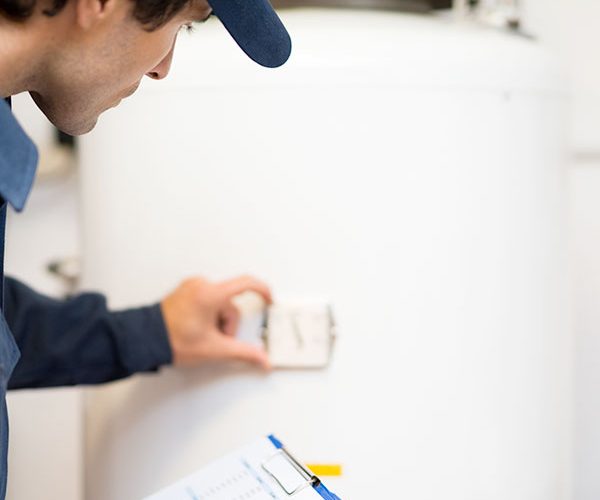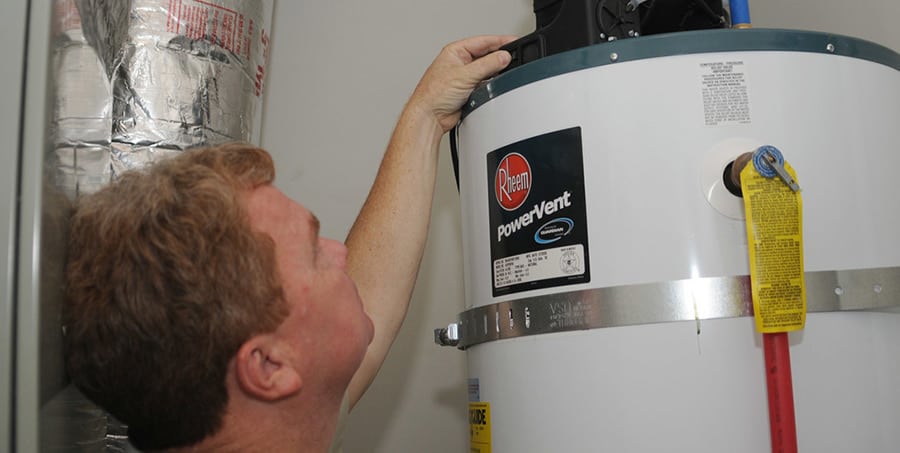They are making a few great points related to Warning Signs You Need Water Heater Repairs in general in the article down the page.

A hot water heater is one of one of the most important basic devices that can be found in a residence. With water heaters, you do not need to experience the tension of home heating water manually every single time there is a requirement to wash, do the laundry, or the recipes. However, there is constantly a possibility that your hot water heater would certainly break down similar to the majority of mechanical devices.
It is important to note any type of little breakdown and also tackle it rapidly prior to things get out of hand. Many times, your hot water heater starts to malfunction when there is an accumulation of debris as a result of continuous usage. As a safety measure, routine flushing of your hot water heater is recommended to prevent sediment build-up as well as protect against practical failure.
Common water heater emergencies and also just how to deal with them
Too little warm water
It may be that the water heating unit can't sustain the warm water need for your apartment. You might upgrade your water heating system to one with a larger capability.
Varying water temperature.
Your hot water heater might start generating water of various temperatures normally ice chilly or scalding warm. In this circumstance, the first thing you do is to ensure that the temperature is readied to the wanted degree. If after doing this, the water temperature level keeps changing during showers or other tasks, you may have a malfunctioning thermostat. There could be a requirement to replace either the thermostat or the home heating system of your water heater.
Dripping hot water heater tank.
In this circumstance, you ought to turn off your water heating system, allow it to cool down, and also carefully look for the resource of the trouble. At times, all you require to do is to tighten up a few screws or pipe connections in cases of small leaks. If this does not function as well as the leak persists, you could need to employ the solutions of a service technician for a suitable replacement.
Blemished or smelly water
When this occurs, you require to understand if the concern is from the water or the storage tank source. If there is no funny odor when you run cold water, after that you are certain that it is your water heater that is damaged. The odiferous water can be brought on by rust or the accumulation of bacteria or sediments in the hot water heater container. You can attempt flushing out your container or changing the anode if the trouble lingers as soon as you observe this. The feature of the anode is to clear out germs from your storage tank. Considering that the anode rod replacement needs a detailed knowledge of your water heating unit, you will certainly require the help of a specialist.
Conclusion
Some home owners ignore little warning and also minor faults in their hot water heater unit. This only causes more damages and also a possible complete malfunction of your appliance. You must deal with your water heater mistakes as soon as they come near avoid more expenses and unnecessary emergency problems.
With water heaters, you don't require to go via the stress of home heating water by hand every time there is a demand to take a bathroom, do the laundry, or the meals. It may be that the water heater can not support the hot water need for your apartment or condo. Your water heater might start generating water of different temperatures generally ice scalding or cool hot. If there is no amusing smell when you run cold water, after that you are specific that it is your water heating unit that is faulty. The odiferous water can be triggered by corrosion or the build-up of microorganisms or sediments in the water heating unit container.
Water Heater Burst: Why This Happens And What To Do Next
Water Heater Explosion Warning Signs
Since storage water heaters are made of metal and store large volumes of heated water, they carry an increased risk of leaking or even exploding as they begin to rust at the fittings and seams over time. If the thermostat controlling the water temperature within the tank is faulty, or if mineral buildup inside the water heater prevents the thermostat from sensing the water’s temperature correctly, the water could become overheated. This will expand its volume within the tank, causing it to press at the tank’s fittings and seams. If these fittings and seams are rusted or corroded, the pressure could result in a leak or even an explosion.
Here are some risk factors and warning signs of an increased risk of water heater leak or explosion:
Your water heater is more than 10 years old. Your water heater makes clanking, banging or rumbling noises as it heats up, indicating that sediment has built up and hardened inside the tank. There is visible rust on the outside of the water heater, especially located at the pipe fittings or the seams that run down the tank. There is rusty water coming from your water heater, indicating that there may be rust building up inside. Your water heater is leaking, which could indicate either a crack somewhere in the tank or a malfunctioning temperature-and-pressure (T&P) relief valve. What To Do When Water Heater Leaks
If you find water dripping or seeping out of your water heater, or pooling around it, it means your water heater is leaking. If you find a leak, it may be best to call a plumbing professional to diagnose the problem and determine how best to handle it. If you choose to tackle it on your own, there are a few things you can do.
TURN OFF THE POWER
Next, shut off the power to the hot water tank at your home’s electrical breaker box. If you don’t shut off the power, the heating elements within the tank could continue to stay hot, which could pose a fire risk.
If you have a gas-powered water heater, you’ll also need to shut off the gas line leading into the tank.
FIND THE LEAK
Now it’s time to determine where the leak is coming from. Likely locations are the T&P valve, the drain valve or one of the pipes or fittings that feed into the top of the tank. If you see any rust or corrosion on the outside of your water heater’s tank, pipes or fittings, these could also be the source of the leak.
REPAIR THE LEAK
Once you determine the source of your water heater leak, you’ll have a better idea of what steps you need to take to fix the problem. It may be a simple fix—such as using a wrench to tighten fittings or replacing the T&P valve—but it may be something more complicated. You may even need to drain the tank, remove the water heater and install a new one.
https://www.abchomeandcommercial.com/blog/water-heater-burst/

We had been shown that write-up about Common Hot Water Heater Problems through an associate on our other site. Those who enjoyed reading our post plz don't forget to share it. Thanks for going through it.
For quick fixes, call!